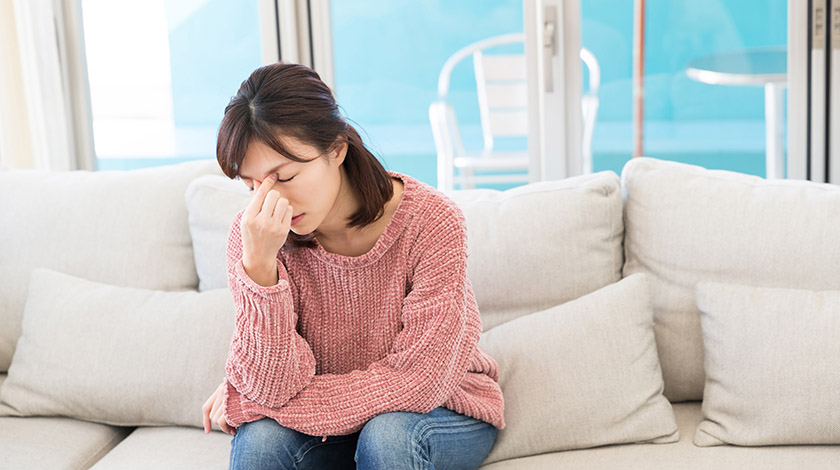All of us get anxious from time to time. Whether it’s the first day of work at a new job, an upcoming exam or even a date, nerves can sometimes get the better of us. A little bit of stress can be healthy and productive, but prolonged periods of anxiety and worry can take their toll on our health, and may even be symptoms of an underlying anxiety disorder.
Around 1 in 10 of all adults will suffer from at least one anxiety disorder in their lifetime.1 To ensure that periodic onsets of anxiety don’t develop into something more severe, we must learn to recognize the symptoms of anxiety and, just as importantly, how to deal with it.
Recognizing anxiety

The symptoms of anxiety are largely due to the release of fear hormones as a response to threatening stimuli. When we are exposed to such stimuli, our body’s fight-or-flight instincts kick in, demanding an increase in heart-rate to boost blood and oxygen circulation and ensure an adequate physical response to the threat. That’s exactly what the release of these fear hormones accomplishes.
Unfortunately, increased oxygen circulation isn’t the only byproduct of anxiety. Other symptoms include:
- Nausea
- Feeling of irritability or pessimism
- Dry mouth
- Sweating
- Shorter attention span
- Trembling
- In extreme cases, fainting.
Getting your anxiety under control

The good news is, anxiety can be managed and controlled — and that includes panic attacks. Here are some of our favourite ways to deal with anxiety.
- Regular exercise. While the nasty symptoms of anxiety are caused by fear hormones, there are “feel-good hormones” too. Hormones such as serotonin improve your calmness, confidence and well-being, and might be exactly what you need during a stressful period. Regular exercise, particularly aerobic exercise, boosts serotonin levels, so consider hitting the gym or going for a jog the next time you feel burnt out.2
- Deep breathing. Slowing down your breathing slows down your heart rate and calms you down.3 The next time you feel worried, try breathing in through your nose as deeply as you can and exhale slowly through your mouth, counting from one to five as you do. You’d be surprised at how much better you feel! And if deep breathing works for you, consider joining a yoga or pilates class for some regular mood-boosting breathing exercises.
- Avoid coffee, alcohol and nicotine. All three of these substances have been linked to increased heart rate, sweating and dry mouth — in other words, they produce the same physiological reactions as fear hormones.4 So if you’re feeling frazzled, try to drink less coffee and alcohol, and quit smoking.
We all need to grapple with anxiety at some point in our lives. It’s part and parcel of growing older and taking on more responsibility. By learning to cope with our anxiety, we can ensure that stress, while inevitable, does not affect our health!
Sources
- Anxiety, Panic and Phobias. Royal College of Psychiatry. Visited 5 September 2017.
- Physical activity and mental health. Royal College of Psychiatrists. Visited 5 September 2017.
- Relaxation tips to relieve stress. NHS Choices. Visited 5 September 2017.
- Self-help treatments for generalised anxiety disorders. NHS Choices. Visited 5 September 2017.

